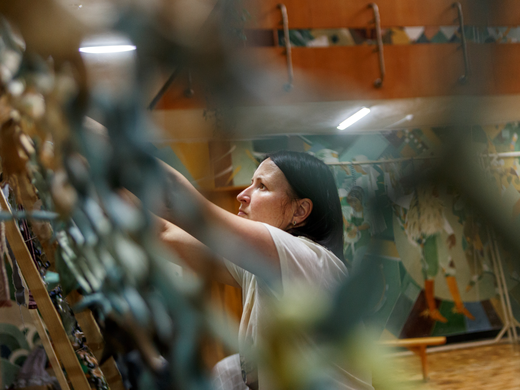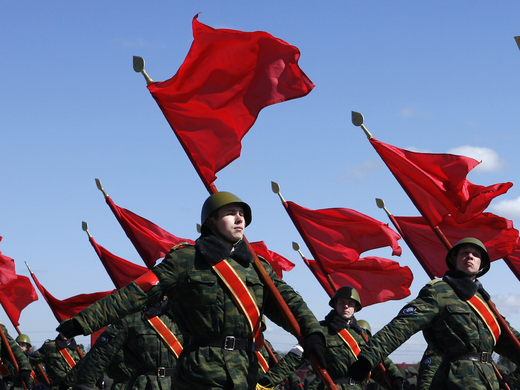With the United Kingdom facing its imminent Brexit and politicians around the world playing up populism and nationalism that is shaking global institutions and putting trade agreements into question, think tanks are confronting the economic and political fallout.
This week’s Global Think Tank Summit, co-hosted by CIGI and the Think Tanks and Civil Societies Program (TTCSP) at the Lauder Institute of the University of Pennsylvania, brings together 85 think tanks from 50 countries to compare notes and propose innovative solutions for transforming public policy and institutions in a period of disruptive politics and increased social and economic turbulence.
“This summit comes at a critical time for our national and global institutions,” said James McGann, director of the TTCSP. “In order to rise to the challenges posed by protracted conflicts, growing inequity and disorder in world politics, think tanks must help policy makers and the public better understand these complex and troubling trends and help develop workable solutions that effectively respond to the policy paralysis and discontent that flows from it.”
Many think tanks are already responding to these challenges through developing new partnerships, employing best practices for raising funds and harnessing new and innovative technologies for collaboration and communication with citizens as well as their governments.
“Innovation and collaboration is crucial to effectively shaping future policies while avoiding problematic consequences,” said CIGI President Rohinton Medhora. “We are keen to share best practices in generating evidence-based policy research and impact among think tanks from around the world.”
Follow #thinktanksummit2016 on Twitter and CIGI’s Facebook page for updates and conversations.
Click here to read the keynote address by Canadian Minister of Foreign Affairs Stéphane Dion.
The 2016 Global Think Tank Summit runs from September 28-30 at the Omni Mont-Royal. It brings together many of the world’s top think tanks, including:
- Asia Competitiveness Institute, Lee Kuan Yew School of Public Policy (Singapore)
- Asian Development Bank Institute (ADBI) (Japan)
- Association for Research and Social Studies (ASIES) (Guatemala)
- Australian Institute of International Affairs (AIIA) (Australia)
- Bangladesh Institute of Development Studies (Bangladesh)
- Brazilian Center for International Relations (CEBRI) (Brazil)
- Brookings Institution (United States)
- Bruegel (Belgium)
- Canadian Global Affairs Institute (Canada)
- Carnegie Endowment for International Peace (United States)
- Center for China and Globalization (CCG) (China)
- Center for Economic and Social Development (CESD) (Azerbaijan)
- Center for Social and Economic Research (CASE) (Poland)
- Center for Strategic and International Studies (CSIS) (United States)
- Center for the Opening and Development of Latin America (CADAL) (Argentina)
- Centre for European Policy Studies (CEPS) (Belgium)
- Centre for International Governance Innovation (CIGI) (Canada)
- Centre for Mediterranean and International Studies (CEMI) (Tunisia)
- Chatham House, the Royal Institute of International Affairs (United Kingdom)
- Chicago Council on Global Affairs (United States)
- China Institute of International Studies (CIIS) (China)
- Columbia International Affairs Online(CIAO) (United States)
- Conference Board of Canada (Canada)
- Consejo Argentino para las Relaciones Internacionales (CARI) (Argentina)
- Council on International Policy (CIP) (Canada)
- Danish Institute of International Studies (DIIS) (Denmark)
- Diplomatic Academy of Vietnam (Vietnam)
- Ecologic Institute (Germany)
- Economic Research Institute for ASEAN and East Asia (ERIA) (Indonesia)
- Egyptian Council For Foreign Affairs (ECFA) (Egypt)
- Elbegdorj Institute (Mongolia)
- ELCANO Royal Institute (Spain)
- Ethiopian Development Research Institute (EDRI) (Ethiopia)
- Ethos Public Policy Lab (Mexico)
- Financial Times (United States)
- Fraser Institute (Canada)
- French Institute of International Relations (IFRI) (France)
- Friedrich-Ebert-Siftung (Germany)
- Fundación Alternativas (Spain)
- Future for Advanced Research and Studies (FARAS) (UAE)
- Gateway House: Indian Council on Global Relations (India)
- Group for the Analysis of Development (GRADE) (Peru)
- Harvard Kennedy School's Belfer Center for Science and International Affairs (United States)
- Institute for National Security Studies (Israel)
- Institute for Research on Public Policy (Canada)
- Institute for Security Studies (ISS) (South Africa)
- Institute for US and Canadian Studies (Russia)
- Institute of Developing Economies - Japan External Trade Organization (IDE-JETRO) (Japan)
- Institute of Foreign Affairs and National Security (IFANS) (Republic of Korea)
- Institute of World Economics and Politics under the Foundation of the First President of Kazakhstan (IWEP) (Kazakhstan)
- International Strategic Research Organization (USAK) (Turkey)
- Ipsos, Global Public Affairs (Canada)
- Israeli Institute for Regional Foreign Policies (Israel)
- Italian Institute for International Political Studies (ISPI) (Italy)
- Japan Institute of International Affairs (JIIA) (Japan)
- Japan International Cooperation Agency Research Institute (JICA Research Institute) (Japan)
- Kenya Institute for Public Policy Research and Analysis (KIPPRA) (Kenya)
- Konrad-Adenauer-Stiftung (KAS) (Germany)
- Korea Development Institute (KDI) (Republic of Korea)
- Korea Institute of International Economic Policy (KIEP) (Republic of Korea)
- Latin American Center for Public Policy, Fundação Getulio Vargas (FGV) (Brazil)
- LSE IDEAS (United Kingdom)
- McKinsey Global Institute (MGI) (India/United Kingdom)
- Mexican Council on Foreign Relations (COMEXI) (Mexico)
- Montreal Economic Institute (MEI) (Canada)
- Myanmar Institute of Strategic and International Studies (Myanmar ISIS) (Myanmar)
- National Centre for Socio-economic Information and Forecast. Ministry of Planning and Investment (Vietnam)
- Netherlands Institute of International Relations Clingendael (Netherlands)
- OCP Policy Center (Morocco)
- Our Hong Kong Foundation (Hong Kong)
- Perry World House (United States)
- Peterson Institute for International Economics (PIIE) (United States)
- Razumkov Centre (Ukraine)
- Resources for the Future (United States)
- Rice University's Baker Institute for Public Policy (United States)
- Rideau Institute on International Affairs (Canada)
- Sadeq Institute (Libya)
- Shanghai Academy of Social Sciences (SASS) (China)
- Think Tank Initiative, International Development Research Council (IDRC) (Canada)
- Think Tanks and Civil Societies Program (TTCSP), University of Pennsylvania (United States)
- Woodrow Wilson Center (United States)
- Zambia Institute for Policy Analysis and Research (ZIPAR) (Zambia)


